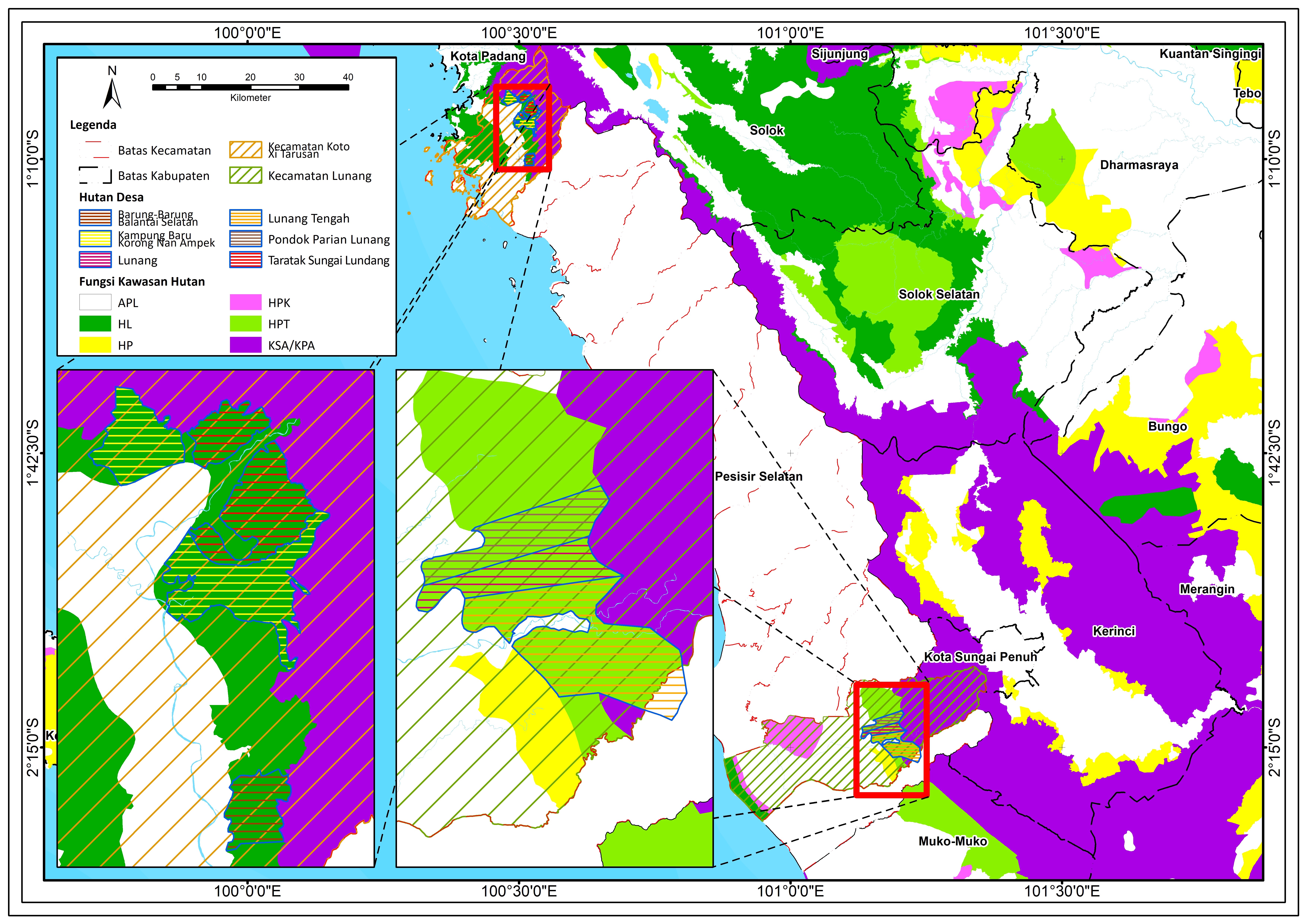Abstract
Indonesian law a recognizes new entity for forest management in the form of social forestry, which grants the right to manage to group of people, village management units, cooperative companies, and customary communities. In order to ensure the applicability and accountability it is important to assess the sustainability of Social Forestry management of Village Forests (HD) schemes based on ecological, economic, social and institutional aspects at the site level. This study aims to reveal the sustainability status of HD management in Pesisir Selatan District, West Sumatra Province as well as to determine the indicators that influence its sustainability. The Assessment of HD in the Pesisir Selatan District (Rap-KPSVforest) used a Multidimensional Scaling (MDS) approach in six cases of HD. The results show that HD Kampung Baru Korong Nan Ampek (KBKNA) and HD Taratak Sungai Lundang (TSL) have the highest sustainability value compared to HD Barung-Barung Balantai Selatan (BBBS), HD Lunang (L), HD Pondok Parian Lunang (PPL) and HD Lunang Tengah (LT). On the ecological dimension, the management of HD KBKNA and HD TSL is considered quite sustainable. However, in terms of the economic, social and institutional dimensions, HD KBKNA and HD TSL have less sustainable value compared to other HDs. Seven indicators are crucial for maintaining HD sustainability namely land cover, forest rehabilitation, sources of business capital, utilization of tourism potential, conflicts over management of yield utilization, distribution of workforce, status improvement of the Social Forestry Business Group (KUPS) as well as the comprehensiveness of the management plan. A multi-business scheme that combines forestry, tourism, agriculture and plantation which has become an integral part and the main source of community livelihood should be continuously developed. This will also increase the resilience of the six HDs because they will not only rely on the agricultural and plantation sectors.
Key words: multidimensional scaling (mds), rapfish; social forestry; sustainability; village forest
Authors
Media Konservasi is an open access journal, meaning that all content is freely available without charge to the user or their institution. Users are allowed to read, download, copy, distribute, print, search, or link to the full texts of the articles in this journal without needing to request prior permission from the publisher or the author.
All articles published by Media Konservasi are licensed under the Creative Commons Attribution 4.0 International License. This allows for unrestricted use, distribution, and reproduction in any medium, provided proper credit is given to the original authors.
Authors submitting manuscripts should understand and agree that the copyright of published manuscripts is retained by the authors. Copyright encompasses the exclusive rights of authors to reproduce, distribute, and sell any part of the journal articles in all forms and media. Reproduction of any part of this journal, its storage in databases, and its transmission by any form or media is allowed without written permission from Media Konservasi.


